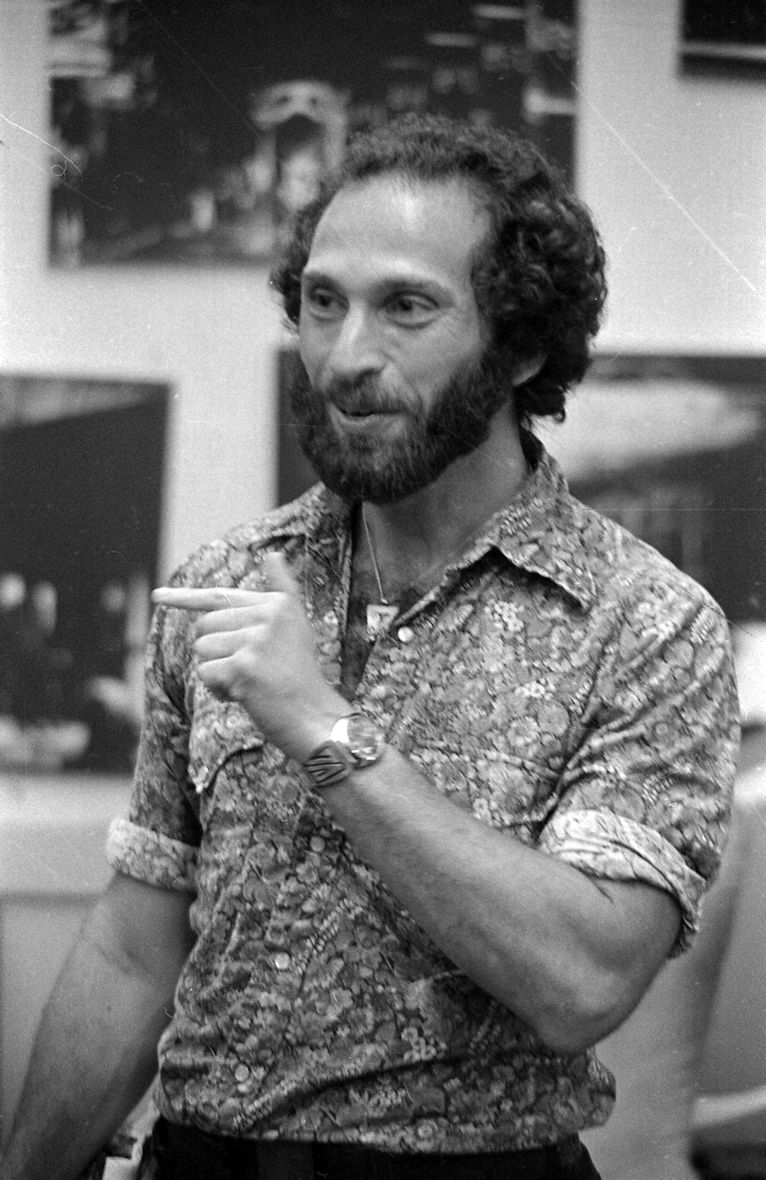

|
Opera Director and
Educator Richard Pearlman Dies at age 68.
He was director of the Lyric Opera of Chicago's Center for American Artists. Richard Pearlman (July 17, 1937 - April 8, 2006) served as director of the Chicago training program from 1995-2006. Previously, he was director of the Eastman Opera Theatre at Rochester's Eastman School of Music from 1976 to 1995. While serving as assistant director for an absent Zeffirelli, Pearlman directed his first opera, Donizetti's Lucia di Lammermoor at the Lyric Opera of Chicago in 1961, with Joan Sutherland, Richard Tucker/Carlo Bergonzi, Mario Zanasi, and William Wildermann, conducted by Antonino Votto. William Mason, general director of Lyric Opera of Chicago, said, "Richard Pearlman brought the Lyric Opera Center to new levels of excellence and renown, and no one in the country was a greater champion of young American singers or of American music than he was. He was important in the career development of so many artists." These students included Renée Fleming, Matthew Polenzani, David Cangelosi, Dina Kuznetsova, and Nicole Cabell. Bass-baritone Jason Grant, who worked extensively with Pearlman at Eastman, said, "He was encyclopedic in his knowledge of singing and was the most influential person I encountered during my student years. He held me to standards that I didn't think I was capable of achieving at such a young age, but he convinced me that I would achieve them. At the end of his second decade at Eastman, when most other educators would have been lethargically coasting, he was always finding new ways of reaching audiences." "My favorite memory of Eastman," Grant added, "was performing at inner city schools. It seemed that we reached audiences in those performances like no other I have sung for in my life. Bringing opera to the children in Rochester was one of the many concepts that Richard brought to fruition." Pearlman was born in Norwalk, Connecticut. He received a degree in English from Columbia University before apprenticing with legendary directors including Gian Carlo Menotti, Franco Zeffirelli, and Luchino Visconti. His directorial debut was the first American staging of Berlioz's Béatrice et Bénédict during the 1964-65 season of the Opera Society of Washington (now the Washington National Opera). He served as the Washington company's general director from 1968 to 1970; his work included a production of Menotti's The Medium recorded by Columbia Records [photo of recording shown near the bottom-right of this webpge], and a production of Britten's The Turn of the Screw with Benita Valente and Eleanor Steber. His first production at the Santa Fe Opera was Così
fan tutte in 1975. He returned in 1982 to stage the world premiere
of George Rochberg's
The Confidence Man. In 1971 he staged The Who's rock opera
Tommy (starring Bette Midler) for Seattle Opera, in 1979 the
American premiere of the Mahler/Weber Die drei Pintos for Opera Theatre
of Saint Louis, and in 1983 the American premiere of Iain Hamilton's Anna
Karenina. == Names which are links in this box and below
refer to my interviews elsewhere on my website. BD
|


| The NBC Opera Theatre was an American
opera company operated by the National Broadcasting Company from 1949 to
1964. The company was established specifically for the purpose of televising
both established and new operas for television in English. The company performed a total of 43 operas for NBC, and garnered 3 Primetime Emmy Award nominations. All of the performances were broadcast live from an NBC studio, and were not pre-recorded or edited before airing, although kinescopes and later videotapes were made of live broadcasts for delayed broadcast purposes in some areas. 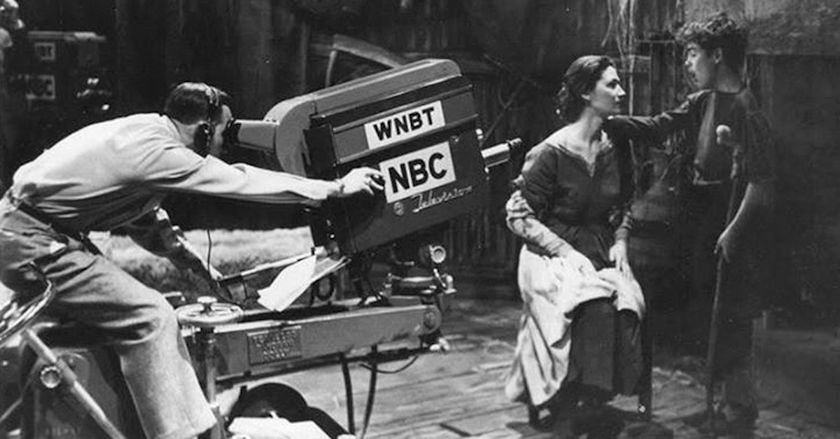
During its 14-year history, the NBC Opera Theatre commissioned several composers to write operas specifically for television. The most famous and most successful of these works was the very first new opera staged by the company, Gian Carlo Menotti's Amahl and the Night Visitors, which premiered live on December 24, 1951 [photo shown above] as the first installment of the Hallmark Hall of Fame program. It was the first opera specifically composed for television in America. Other operas commissioned by the company included Bohuslav Martinů's The Marriage (1953), Lukas Foss' Griffelkin (1955), Norman Dello Joio's The Trial at Rouen (1956), Leonard Kastle's The Swing, Stanley Hollingsworth's La Grande Bretèche (1957), Menotti's Maria Golovin (1958), Philip Bezanson's Golden Child (1960), Kastle's Deseret (1961) and Menotti's Labyrinth (1963). |
|
Pino Donati (9 May 1907 – 24 February 1975) was an Italian composer and for many years artistic director of the Chicago Lyric Opera. Donati was born in Verona. From 1936 he was superintendent of the
Arena di Verona, and then from 1950 the Teatro Comunale of Bologna. In
1958 he left Italy for Chicago to work for Carol Fox and remained employed
there until his death in Rome at the age of 67. His wife, who survived
him, was the soprano Maria Caniglia.
|
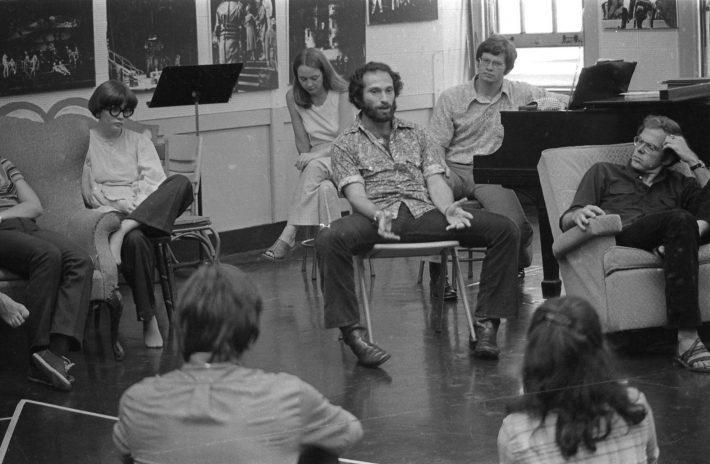
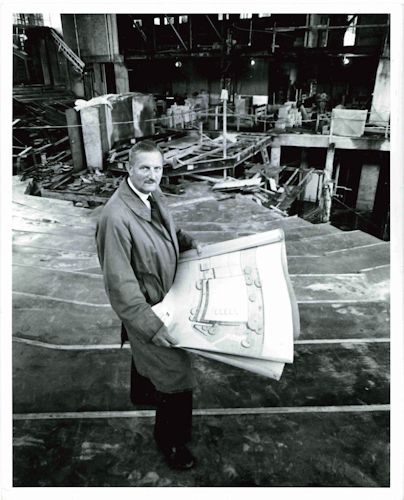
Sir William Tyrone Guthrie (2 July 1900 – 15 May 1971) was an English theatrical director instrumental in the founding of the Stratford Festival of Canada, the Guthrie Theater in Minneapolis, Minnesota, and the Tyrone Guthrie Centre at his family's ancestral home, Annaghmakerrig, near Newbliss in County Monaghan, Ireland. He is famous for his original approach to Shakespearean and modern drama. In 1924 Guthrie joined the BBC as a broadcaster and began to produce plays for radio. This led to a year directing for the stage with the Scottish National Players, before returning to the BBC to become one of the first writers to create plays designed for radio performance. From 1929–33, he directed at various theatres, including the Cambridge Festival Theatre in 1929 and a production of Pirandello's Six Characters in Search of an Author at the Westminster Theatre in 1932. His work in London at the Old Vic and the Sadler’s Wells theatres earned him acknowledgment as a significant director. During 1933–34, and again from 1936–45, he was director of the Shakespeare Repertory Company. While in Montreal, Guthrie produced the Romance of Canada series of radio plays for recalling epic moments in Canadian history. The series was broadcast on the Canadian National Railway radio network. Hubert Butler translated the text for Guthrie's 1934 production of Anton Chekhov's Cherry Orchard, for perhaps its first English-language production. In the 1940s Guthrie began to direct operas, to critical acclaim, including a realistic Carmen at Sadler's Wells and the Metropolitan Opera in New York. Guthrie produced Gilbert and Sullivan's H.M.S. Pinafore in 1960 and The Pirates of Penzance in 1961, which were televised in Canada and also brought to the Phoenix Theatre in New York and on tour in the US. In 1962, as soon as the Gilbert and Sullivan copyrights expired, he brought these productions to Britain. They soon played at Her Majesty's Theatre and were broadcast by the BBC. They were among the first Savoy opera productions in Britain not authorized by the D'Oyly Carte Opera Company.Sir Peter Hall wrote, "Among the great originators in British Theatre...Guthrie was a towering figure in every sense. He blazed a trail for the subsidised theatre of the sixties. He showed how to run a company and administer a theatre. And he was a brilliant and at times great director..." * * *
* *
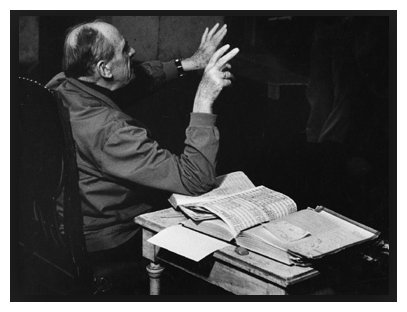
Walter Felsenstein (30 May 1901 – 8 October 1975) was an Austrian theater and opera director. He was one of the most important exponents of textual accuracy, and gave productions in which dramatic and musical values were exquisitely researched and balanced. In 1947 he created the Komische Oper in East Berlin, where he worked as director until his death. Preparations for each new production could last two months or longer. If singers meticulously coached and trained in their parts fell ill, performances were simply canceled. Since the glamorous superstars of the day could never spare the time Felsenstein required, he worked with his own hand-picked troupe of devoted singers, most from Eastern Europe and virtually unknown in the West. Everything was sung in German, usually in his own translations. Whoever wanted to experience this singular operatic mix had to make the pilgrimage to East Berlin, a trip that became even dicier after the wall went up. Together with the Komische Oper troupe he visited the USSR a few times. In Moscow it was stated that his way of the opera staging was similar to the principles of Konstantin Stanislavsky. His most famous students were Götz Friedrich and Harry Kupfer, both of whom went on to have important careers developing Felsenstein's work. |
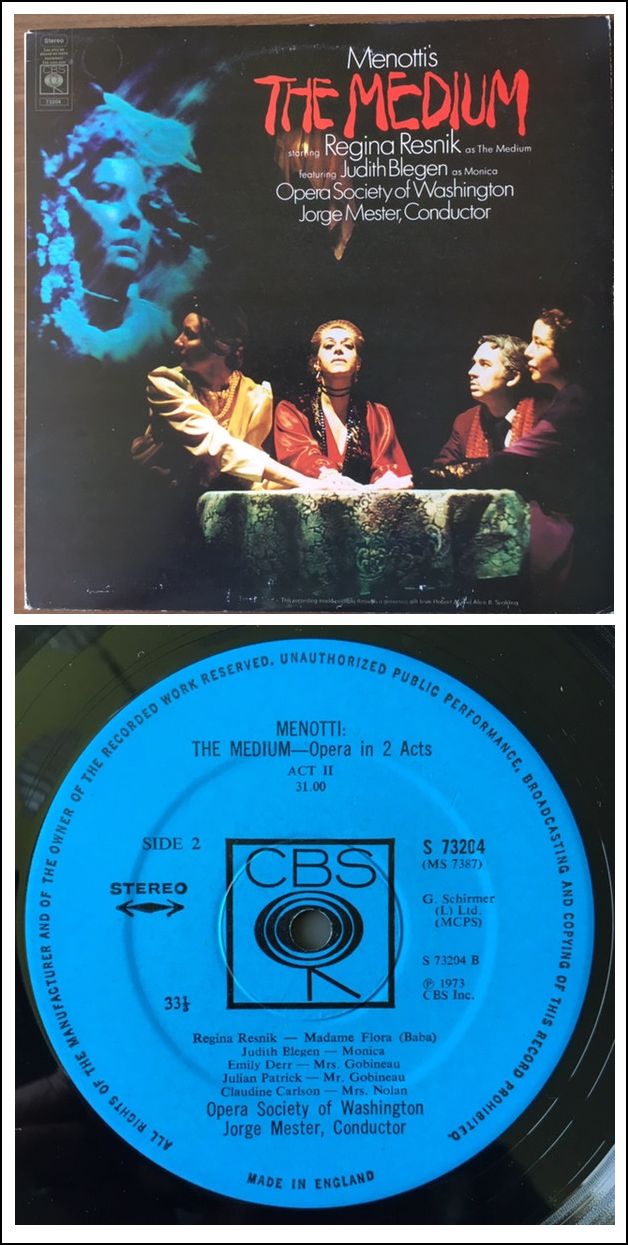
© 1989 Bruce Duffie
This conversation was recorded in Chicago on January26, 1989. Portions were broadcast on WNIB the following week. This transcription was made in 2024, and posted on this website at that time. My thanks to British soprano Una Barry for her help in preparing this website presentation.
To see a full list (with links) of interviews which have been transcribed and posted on this website, click here. To read my thoughts on editing these interviews for print, as well as a few other interesting observations, click here.
Award - winning broadcaster Bruce Duffie was with WNIB, Classical 97 in Chicago from 1975 until its final moment as a classical station in February of 2001. His interviews have also appeared in various magazines and journals since 1980, and he now continues his broadcast series on WNUR-FM, as well as on Contemporary Classical Internet Radio.
You are invited to visit his website for more information about his work, including selected transcripts of other interviews, plus a full list of his guests. He would also like to call your attention to the photos and information about his grandfather, who was a pioneer in the automotive field more than a century ago. You may also send him E-Mail with comments, questions and suggestions.